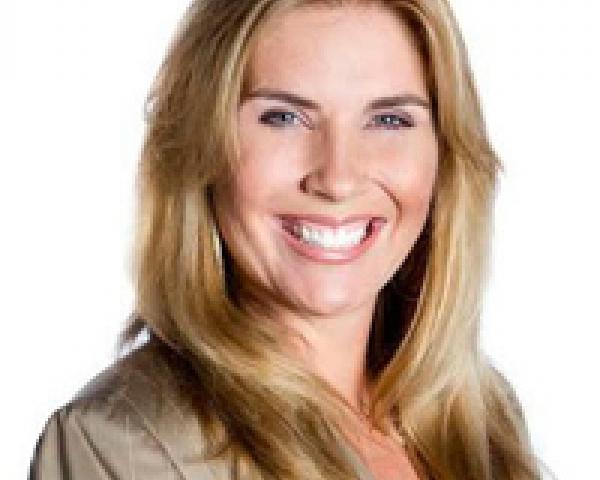"Companies that offer consistently best-in-class customer experiences tend to grow faster and more profitably" - McKinsey
If you've been in the insurance business for any length of time, no one has to tell you that times are changing.
Thanks to the ever-increasing popularity of the
sharing economy, consumers are re-thinking the traditional agent-policyholder relationship.
Any new thinking regarding ways to make insurance more convenient and affordable always leads to the notion of working directly with
online resources.
This scenario was true with the
advent of the internet and is seeing its second wave in the face of various marketplace innovations -- including the sharing economy.
Customer Experience is Changing: Insurance Industry
Historically, the insurance industry has been highly regulated, with strict underwriting requirements and tightly guarded claim adjustment policies. So you may be asking how would an industry such as this even begin to follow the unconventional rules of sharing economy?
Let's go look!
Making Lemonade out of Lemons
A ground-breaking insurtech startup,
Lemonade, has changed the rules and is attempting to modify the image of the insurance industry forever. Lemonade has certainly ignited the discussion.

Currently licensed to sell personal insurance in New York, Lemonade plans to expand and set a standard in the insurance industry. According to
Fortune, the startup Lemonade was founded by Daniel Schreiber and Shai Wininger and is loosely based on the principles of successful sharing economy companies such as
Uber and
Airbnb.
See also: 4 Mandates for Agents in Sharing Economy
Lemonade aims to sell insurance policies online to individuals who become a member of the
peer-to-peer company.
It goes something like this…
You can join the online community at Lemonade and pay your monthly premiums just like you would to your traditional insurance agent/company. However, the premiums are pooled together by members of the group for the payout of claims.
Sharing Economy Benefits to Insurance Consumers
Because consumers don't have the time or patience to wait for days or weeks to start a new insurance policy, the ability to get instant coverage with the click of a button on a mobile phone app is highly attractive. It offers consumers the ability to be insured immediately.
Here are a few more self-described benefits of the new peer-to-peer model:
- A startup like Lemonade doesn't have anything to gain by denying claims, so the odds of a fast and fair settlement increase.
- A reduction in fraud and much lower operating costs keep premiums low.
- Monthly fees are low (as low as $35/month for homeowner's insurance, $5/month for renter's insurance)
- Customers get a more personal consumer experience with peers instead of dealing with large insurance companies, which helps rebuild the trust factor in purchasing insurance.
- Monthly premium money is considered "peer money," and leftover funds from underwriting profits at the end of a term are donated to a cause, chosen by the peer members.
This is by no means a promotion of Lemonade specifically, just an acknowledgment that "the times they are a-changin'."
And this is a good thing.
Customer Experience is Changing: Not Feeling the Love
There is no question that some consumers have a less-than-glowing opinion about insurance companies.
Many don't like the idea of having to pay premiums to large and often impersonal firms. This
consumer grievance is by no means limited to insurance carriers (I'm looking at you too, finance industry).
If there should be a rate increase or a claim procedure gets complicated, the
consumer/insurance company relationship doesn't get better. The trust levels go down, right along with customer satisfaction.
The goal of the sharing economy is not only to give the consumer additional options but to provide a better, more technologically friendly, customer experience.
The goal is to
produce better feelings toward having to pay insurance premiums.
Many carriers fail to realize that
speed of claims resolution is just as important to consumers as professionalism and courtesy. And, with the all the innovations within the sharing economy that are premised on mobile technology, consumers are ready for a change.
And that change is going mobile.
Customer Experience Is Changing (Finally)
Schreiber stated that he was pleasantly surprised at how many large reinsurers were interested in providing support and seed money to fund the start-up. Schreiber stated, "Instead of being antagonistic, the insurance industry has taken a more 'We've been waiting for you' approach."
See also: Sharing Economy: The Concept of Trust
As for this trend catching on,
more than 90% of consumers who participate in sharing economy ventures would endorse or recommend the company or service they have recently used, according to
Vision Critical.
According to
Forbes, "the sharing economy excels at customer experience, and that is what inspires customer love and loyalty."
This new world of customer services involves choice and a seamless mobile experience. Simple as that.
As the demand for more convenient, affordable goods and services will only increase, it's clear that consumers are sending a loud and clear message of support…even in the insurance industry.
Customer experience into the future will involve speed and ease of service. This, as we have seen, is premised entirely on mobile technology and innovative business models.
 Currently licensed to sell personal insurance in New York, Lemonade plans to expand and set a standard in the insurance industry. According to Fortune, the startup Lemonade was founded by Daniel Schreiber and Shai Wininger and is loosely based on the principles of successful sharing economy companies such as Uber and Airbnb.
See also: 4 Mandates for Agents in Sharing Economy
Lemonade aims to sell insurance policies online to individuals who become a member of the peer-to-peer company.
It goes something like this…
You can join the online community at Lemonade and pay your monthly premiums just like you would to your traditional insurance agent/company. However, the premiums are pooled together by members of the group for the payout of claims.
Sharing Economy Benefits to Insurance Consumers
Because consumers don't have the time or patience to wait for days or weeks to start a new insurance policy, the ability to get instant coverage with the click of a button on a mobile phone app is highly attractive. It offers consumers the ability to be insured immediately.
Here are a few more self-described benefits of the new peer-to-peer model:
Currently licensed to sell personal insurance in New York, Lemonade plans to expand and set a standard in the insurance industry. According to Fortune, the startup Lemonade was founded by Daniel Schreiber and Shai Wininger and is loosely based on the principles of successful sharing economy companies such as Uber and Airbnb.
See also: 4 Mandates for Agents in Sharing Economy
Lemonade aims to sell insurance policies online to individuals who become a member of the peer-to-peer company.
It goes something like this…
You can join the online community at Lemonade and pay your monthly premiums just like you would to your traditional insurance agent/company. However, the premiums are pooled together by members of the group for the payout of claims.
Sharing Economy Benefits to Insurance Consumers
Because consumers don't have the time or patience to wait for days or weeks to start a new insurance policy, the ability to get instant coverage with the click of a button on a mobile phone app is highly attractive. It offers consumers the ability to be insured immediately.
Here are a few more self-described benefits of the new peer-to-peer model:








